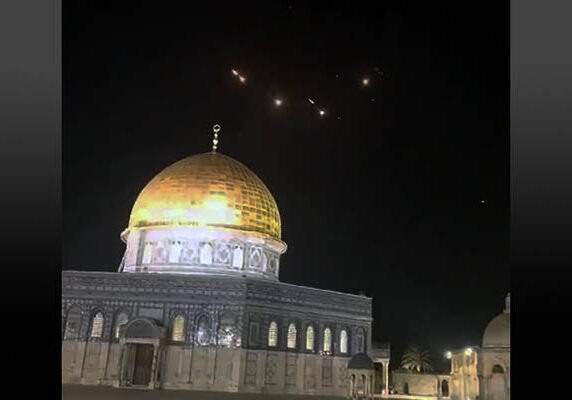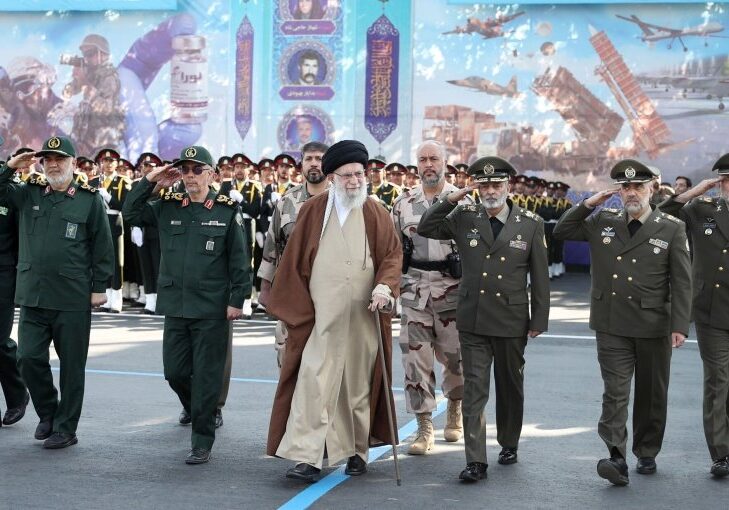Australia/Israel Review
AIR New Zealand: Kiwis in Turtle Bay
Mar 1, 2010 | Miriam Bell
Miriam Bell
In several columns last year I wrote that the diplomatic relationship between New Zealand and Israel appeared to be improving – due to the new more Israel-friendly National-led government and the imminent reopening of an Israeli Embassy in Wellington.
A reflection of this improved relationship seemed to come with the New Zealand delegation’s walk-out on Iranian President Mahmoud Ahmadinejad’s address to the United Nations General Assembly in September.
Then, in another indication of a better diplomatic relationship, Israel was granted membership to the Human Rights Council’s JUSCANZ group [an acronym for the non-European Union democracies of Japan, the United States, Canada, Australia and New Zealand] in Geneva in January. Israel’s admission, which came after decades of exclusion, was approved by consensus, and signifies the group regards the Jewish state as “like-minded”.
Former New Zealand Jewish Chronicle editor Mike Regan said that, while he could be wrong, he doubts the Labour-led government would have agreed to include Israel in the JUSCANZ group.
Nonetheless, New Zealand’s recent voting on Israel-related resolutions at the UN does not seem to have changed much from the voting pattern advocated by the last Labour-led government. For example, at the 64th General Assembly in December, six draft resolutions specifically relating to the “question of Palestine” were adopted (among about 20, mostly one-sided, resolutions related to Israeli-Arab issues that are adopted every year). New Zealand voted against one resolution, abstained on two resolutions, and voted in favour of the others.
Explaining Wellington’s votes, New Zealand’s permanent representative to the UN Jim McLay said his country had consistently supported negotiations towards a two-state solution to the Middle East conflict.
Regarding a resolution funding the UN’s Special Information Program on the Question of Palestine, a long-standing part of the extensive UN bureaucracy devoted to pro-Palestinian propaganda, McLay said New Zealand supported the dissemination of balanced information and welcomed a focus on promoting dialogue between the two sides, but believed it was necessary for the program to carry out its mandate in a manner that reflected the full spectrum of perspectives.
The resolution New Zealand voted against was to re-affirm the long-standing “Division of Palestinian Rights of the Secretariat”, a segment of the UN which, organisationally, places the Palestinians on a par in importance with whole regions of the world such as the Americas or Africa, represented by other Divisions of the Secretariat. McLay said the government was not convinced the division was a constructive use of resources and would do little to contribute to the Middle East peace process – although “that did not detract from New Zealand’s strong support for Palestinian self-determination”.
New Zealand argues that its votes, together with the accompanying explanation, fits in with the NZ Ministry of Foreign Affairs and Trade’s long-held position that “New Zealand has sought to approach the issue [of the Israel-Palestinian conflict] even-handedly, seeking a solution that provides for a Jewish/Israeli and a Palestinian state on the land of the former British mandate of Palestine”. Critics would contend that this goal can best be advanced by avoiding the one-sided language of many of these resolutions, which generally focus condemnation and place demands on Israel only, and ask for nothing of the Palestinian side.
New Zealand abstained on the UN vote recommending adoption of the controversial Goldstone Report into last year’s Gaza conflict. This was a resolution which Australia and many other Western countries voted against.
Explaining this vote, Ambassador McLay said that New Zealand “seeks a just, enduring, comprehensive peace settlement based on the two-state solution, with Israel and Palestine living side-by-side, in peace and security” but also criticised “the continued bias against Israel in the handling of this important question in the Human Rights Council”.
However, McLay also said that “serious allegations are raised by the Goldstone Report” and called for “all parties to begin credible, independent, domestic investigations into the allegations”. Despite this, he said New Zealand was abstaining because “we cannot support a resolution that, in its first operative paragraph, endorses a Human Rights Council report on a special session that includes a biased, one-sided resolution”.

The abstention on the Goldstone resolution has caused consternation – albeit to varying degrees – among many New Zealand supporters of Israel.
John McCormick, Chairman of the Hawkes Bay branch of the NZ Friends of Israel Association, said the abstention was concerning and that he thought McLay’s statement was not particularly good – although he was not sure the vote was a fair reflection of the government’s views. He also said the new government’s recent voting pattern on Israel-related issues seemed a bit patchy, but that the establishment of a more active, pro-Israel lobby group would probably help the situation.
Kiwis for Balanced Reporting of the Middle East member Brian Metcalf said he was disappointed by the abstention, but not surprised. He suspects the current government wants to be seen in the same light as its predecessor – ie. one that claims to act in a strictly fair and even-handed manner.
Metcalf said the government had acknowledged the anti-Israel bias within the Arab dominated Human Rights Council in its explanation. He added that, “New Zealand is insisting on impartiality and, in doing so, it will earn the trust and respect of both sides.”
Meanwhile, New Zealand Jewish Council President Stephen Goodman said he thought the New Zealand government is constructively developing its relationship with Israel. “The council is pleased with the recent progress and goodwill demonstrated by both countries to each other, and we look forward to the reopening of the Israeli Embassy in New Zealand in the near future.”
Tags: Australasia, New Zealand






